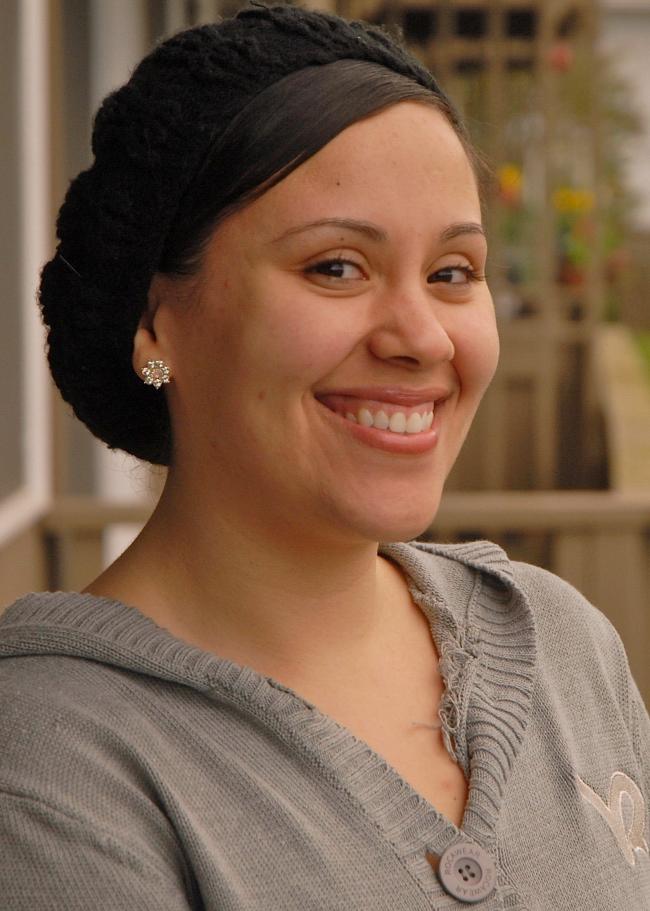Former foster child educated in several West Seattle schools
Tiffany Diaz attended several West Seattle grade schools, South Seattle Community College, and lived in a YMCA-sponsored transitional home near Westwood Village. She attends Seattle Pacific University.
Mon, 04/12/2010
Tiffany Diaz attended more West Seattle schools than most other kids, and while the 21 year-old said she got good grades and a good education, her sampling of different area schools was not by choice. She hopped from school to school both because her mother moved from address to address, and because she was also in foster homes.
“I never stayed in the same elementary or middle school for over a year or two,” said Diaz, whose father is Cuban and mother, Caucasian. “My mom didn’t like staying in the same place and we’d move whenever her lease was up. Sometimes she messed up so I would go to foster homes, then come back to her house. My dad has always been in prison. He’s 60, and is finally out now. I have some contact with him. I feel like it is in a way nurturing because I never really had a relationship with him. But for me it’s kind of too late. I’m not very forgiving about it.”
Diaz attended kindergarten in White Center Heights in Highline, then attended Roxhill, Gatewood, Sanislo, “and a bunch more,” she recalled.
“Surprisingly, I stayed in the same high school (Franklin) all four years.”
After graduating, she returned to grade school, this time as a professional tutor, teaching reading and math to K-5 at Highland Park Elementary. While tutoring she moved into a YMCA-operated transitional house for 15 months, the maximum allowed. That 4-bedroom home is near Westwood Village. She then attended South Seattle Community College.
She was required to take two training classes before moving into the house.
“They teach you how to manage your money, to get along with other people, and to respect others’ property,” she said. “And no drugs or alcohol in the house. You can’t have overnight guests and your door has to be cracked open when guests are in your room. The house manager is there but is not breathing in your room. I had a lot of respect for her, and she respected me.”
Diaz’s 19 year-old sister now lives there, and she said they have a close relationship. They have a five year-old sister who was adopted and lives in Pennsylvania.
The YMCA of Greater Seattle Young Adult Services program owns five houses and 19 studio apartments in King County for young people transitioning to adulthood. In West Seattle, the program had provided support for 191 young adults since 2009. They also serve homeless youth who do not report an address and therefore may serve even more young people in the West Seattle area.
When foster children turn18 they become “foster alumni” and “age out of the system.” Nationwide, over 25-percent of foster alumni become homeless as these teens face the harsh realities of searching for work, housing, and possibly school funding while having been raised in an unstable environment.
Diaz seems to be beating the odds, as she is now a fulltime student at Seattle Pacific University, and shares an apartment near campus with her best friend. She is studying to teach kindergarten and possibly physical fitness. She was helped by an Education Training Voucher, or “ETV,” a grant designed for former foster youth, but said she is worried as her nest egg from her tutoring job is dwindling. She does not think she can manage working 20 hours a week while attending class and studying hard. Still, she appears optimistic with a youthful sparkle in her eyes focused on a bright future.
“They always say it’s a cycle, that when you grow up in poverty you stay that way,” said Diaz. “Since I could remember, I never wanted to be poor, on Section 8 or on welfare. I wasn’t happy as a kid. I wanted the two parents. My mother was on welfare and at the end of the month there was never any money. I was always a good student, even with my background and how my parents were.”


